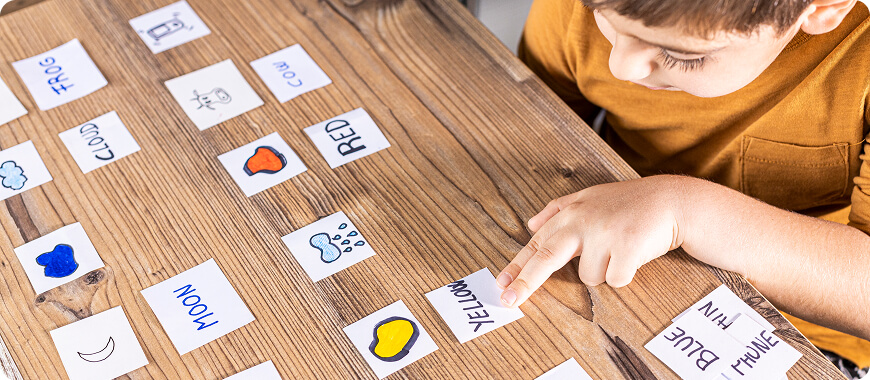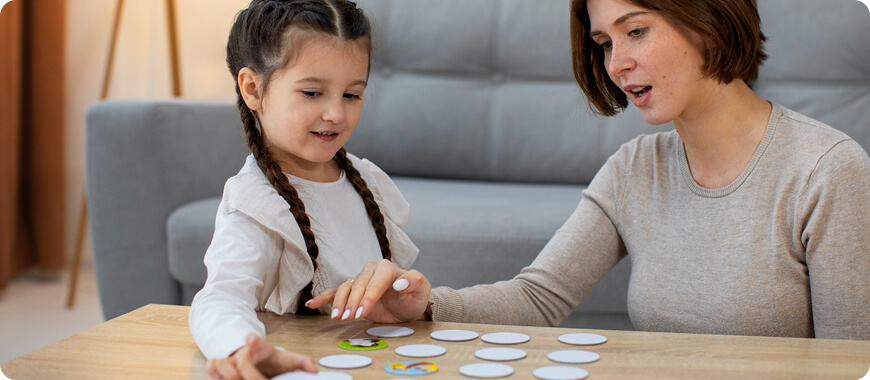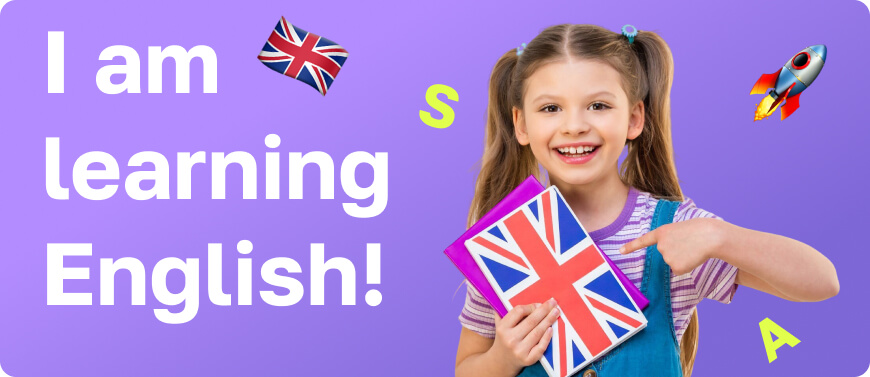If you're a parent or teacher looking for the best ways to learn English words with your child, this article is for you. At Learnlink, we believe that learning should be exciting, engaging, and — most importantly — enjoyable. That’s why we’ve put together this comprehensive guide filled with fun vocabulary games for kids, interactive activities, and expert tips to help your little one fall in love with the English language.
Whether you're teaching one child at home or working with a group of students in the classroom, these ideas will help you bring new vocabulary to life in creative and memorable ways.
Why Daily Vocabulary Practice Matters for Kids
Learning new English words isn’t just about memorising lists — it's about making connections, understanding meaning, and using words in real-life situations. When children engage in daily vocabulary practice, they develop stronger communication skills, improved reading comprehension, and greater confidence in speaking.
Young learners absorb language best when it feels like play rather than work. Regular exposure to new words helps them build a strong foundation for future academic success and fluency in English.
Benefits of Learning New Words Everyday
- Enhances reading fluency
- Builds stronger writing abilities
- Encourages better thinking and expression
- Increases self-esteem when communicating in English
A consistent routine helps reinforce what they've learned and makes it easier to remember over time. The key is to make it enjoyable and meaningful.
How Vocabulary Builds Confidence in Speaking and Reading
When children know more words, they feel more confident expressing themselves. This confidence extends to both spoken and written English. They begin to understand more complex texts, join conversations with ease, and even enjoy reading more than before.
At Learnlink, we focus on helping kids improve their vocabulary through interactive lessons, storytelling, and playful challenges tailored to their age and level.
Top 10 Fun Vocabulary Games for Kids
Let’s look at some exciting ways to teach English vocabulary through different word games that will keep your child engaged and motivated.
1. Flashcard Matching Game
This classic game involves matching picture cards with word cards. It’s a great way to introduce new vocabulary while reinforcing visual memory.
How to Play:
- Prepare flashcards with images and corresponding words
- Place all cards face down
- Take turns flipping two cards to find a match
Pro tip: Use this activity during short breaks or as a warm-up before homework.
2. Word Charades
Charades is a fantastic way to get moving while learning. Children act out words without speaking, and others guess what the word is.
How to Play:
- Choose a list of vocabulary words
- One player acts out the word
- Others must guess what is the word using only gestures
This game encourages quick thinking and helps connect actions with words.
3. Picture Word Bingo
Bingo isn’t just for numbers — it works wonders with vocabulary too!
How to Play:
- Create bingo cards with images or words
- Call out words one by one
- Mark off squares when a match is found
Perfect for classrooms or family time, this game boosts recognition and recall.
4. Guess the Word with Clues
A fun twist on "What am I?" — give clues about a vocabulary word and let your child guess.
Example:
Clue: “It starts with ‘b’, you read it every night.”
Answer: Book
This activity sharpens listening skills and reinforces spelling and pronunciation.
5. Vocabulary Scavenger Hunt
Turn learning into an adventure! Hide vocabulary cards around the house or classroom and let kids search for them.
How to Play:
- Hide slips of paper with vocabulary words
- Give clues or descriptions to guide the search
- Once found, ask your child to use the word in a sentence
This game helps children connect words with real-life objects.
6. Memory Card Game
Similar to flashcard matching, but with a competitive edge. Players take turns flipping cards to find pairs.
Why it works:
- Boosts memory retention
- Reinforces word-picture associations
- Encourages concentration and attention span
Ideal for solo or group play.
7. Word Race (Team Game)
Split into teams and race to write or say as many words from a given category as possible.
Categories might include:
- Animals
- Food
- Emotions
- School supplies
This fast-paced game builds speed and accuracy in recalling vocabulary.
8. Roll-a-Word Dice Game
Create dice with different vocabulary categories or letters. Roll and name a word that fits.
Example:
Roll a “F” — answer: Fish
Roll “animals” — answer: Lion
Great for spontaneous learning and creativity.
9. Story Building with New Words
Ask your child to create a short story using a set of new vocabulary words. This helps them understand how to use the words in context.
Bonus: Record the story together and share it with friends or teachers!
10. Digital Vocabulary Apps and Games
Technology can be a powerful tool for learning. There are many online platforms and apps designed to make vocabulary practice interactive and fun.
Try apps like:
- ABCmouse
- Epic!
- Duolingo Kids
These tools offer games, quizzes, and stories that help children learn new words in an engaging way.
How to Make Vocabulary Practice a Daily Habit
Consistency is key. Here are some simple strategies to help your child stay on track and learn new english words everyday
Set a Word-a-Day Challenge
Choose one new word each day and encourage your child to use it throughout the day. You could even create a small chart where they mark off each completed word.
You can start with simple words like:
- happy
- hungry
- tired
- excited
And gradually move to more complex ones like:
- curious
- adventurous
- thoughtful
- imaginative
Use Visual Reminders and Word Walls
Create a “word wall” at home with pictures and labels. Seeing the words regularly helps reinforce memory.
You could also label everyday items like:
- Door
- Chair
- Window
- Table
This exposure helps children associate words with real-world objects.
Combine Learning with Playtime or Screen Time
Use screen time wisely — choose educational shows or videos that introduce new vocabulary. During playtime, talk about the toys, actions, and feelings involved.
For example, if your child is playing with toy animals, describe each one using new adjectives or verbs:
- "The lion is roaring loudly."
- "The elephant is walking slowly."
- "The monkey is swinging quickly."
Tips for Parents and Teachers
Supporting your child’s vocabulary growth doesn’t have to be hard — just a few minutes a day can make a big difference.
Keep It Positive and Encouraging
Celebrate every effort! Praise your child when they try to use new words, even if they don’t get it right straight away. Positive reinforcement helps build motivation and self-confidence.
Avoid correcting mistakes harshly. Instead, model the correct usage gently:
- If they say “I goed outside,” respond with, “Yes! You went outside!”
Connect New Words with Real-Life Situations
Help your child see how words apply in real life. For example:
- While cooking, talk about ingredients and actions
- On a walk, describe what you see and hear
- While reading, stop to explain tricky words
This contextual learning makes vocabulary stick.
Track Progress and Celebrate Small Wins
Keep a vocabulary journal or progress tracker. Each time your child learns a new word, add it to the list. Watching their progress grow can be incredibly motivating.
You can even turn it into a game — reward them after reaching certain milestones:
- 10 new words = a special treat
- 50 new words = a movie night
- 100 new words = a certificate of achievement
Online Tools & Resources to Support Learning
In today’s digital world, there are plenty of resources available to support your child’s vocabulary journey.
Best Websites and Apps for Kids’ Vocabulary Building
In today’s digital world, there are many high-quality websites and apps that make learning new English words both fun and effective for children. Whether your child is just starting to build their vocabulary or is ready to explore more complex words, these tools offer engaging, interactive content that keeps them motivated and excited to learn.
Let’s take a look at some of the top-rated platforms that support vocabulary development in young learners.
- Learnlink
Our own platform, Learnlink, offers a wide range of online interactive lessons designed specifically for children learning English. With expert tutors, custom vocabulary games, and themed lessons, Learnlink helps kids learn new English words everyday — all while having fun.
- Oxford Owl
This free resource from Oxford University Press provides access to hundreds of e-books, activity sheets, and guided reading sessions. It’s perfect for parents who want to help their child improve vocabulary through reading.
- Starfall
Starfall is especially great for early learners. It uses phonics-based games and stories to introduce new words in a structured and engaging way.
- Duolingo Kids
Designed for children aged 3–10, Duolingo Kids turns vocabulary learning into a game. With colourful visuals and bite-sized lessons, it’s a great tool for daily practice.
These apps and websites are excellent tools for reinforcing vocabulary in a way that feels more like play than study. They also allow parents and teachers to track progress and adjust difficulty levels as children grow in confidence and ability.
Printable Vocabulary Games for Home or Classroom Use
Downloadable resources like:
- Word searches
- Crosswords
- Matching games
- Bingo cards
are perfect for offline learning. You can print them and reuse them again and again.
Learn New English Words with Learnlink!
At Learnlink, we’re passionate about helping children fall in love with learning English. Our expert tutors design fun, interactive lessons that make vocabulary come alive. Whether your child is just starting out or wants to build on existing skills, our courses are tailored to suit their needs.
Ready to start your child’s English journey?
Final Thoughts
There are so many fun ways to learn English words — and the best part is, your child won’t even notice they’re studying! From playing vocabulary or word games and scavenger hunts to digital tools and storytelling, vocabulary building can be a joyful experience.
With a little consistency, encouragement, and the right resources, your child can build a strong foundation in English that will last a lifetime.
Start exploring our range of vocabulary games and activities today — and let’s make learning English fun, together!











